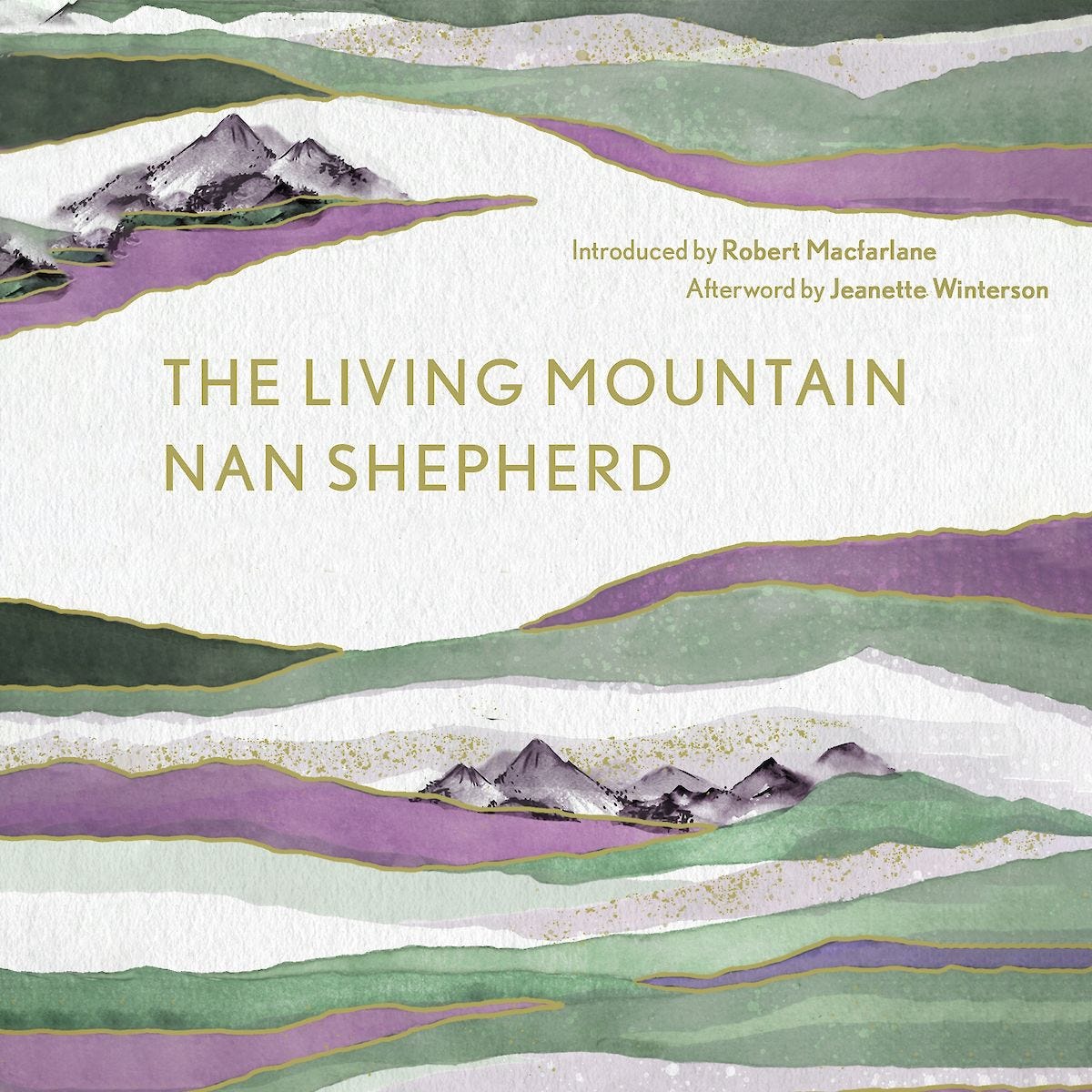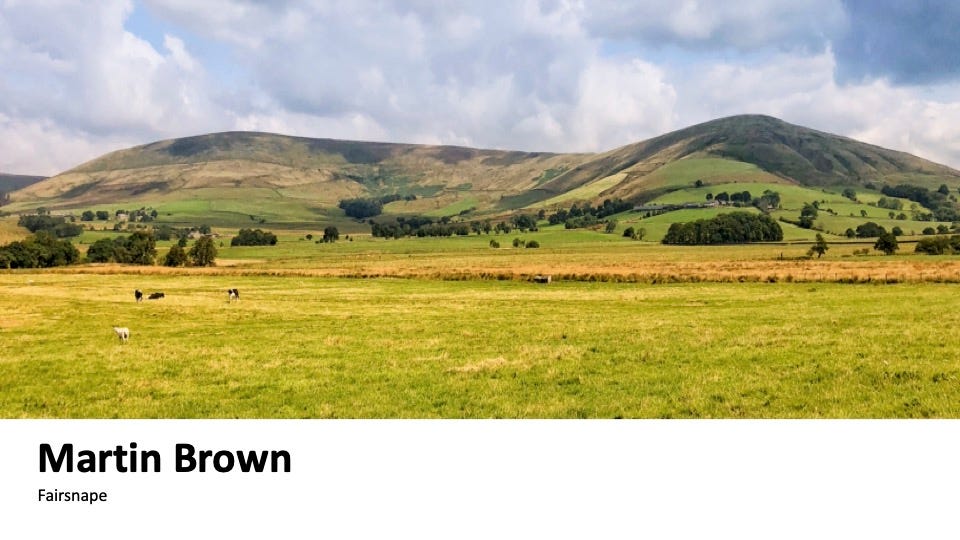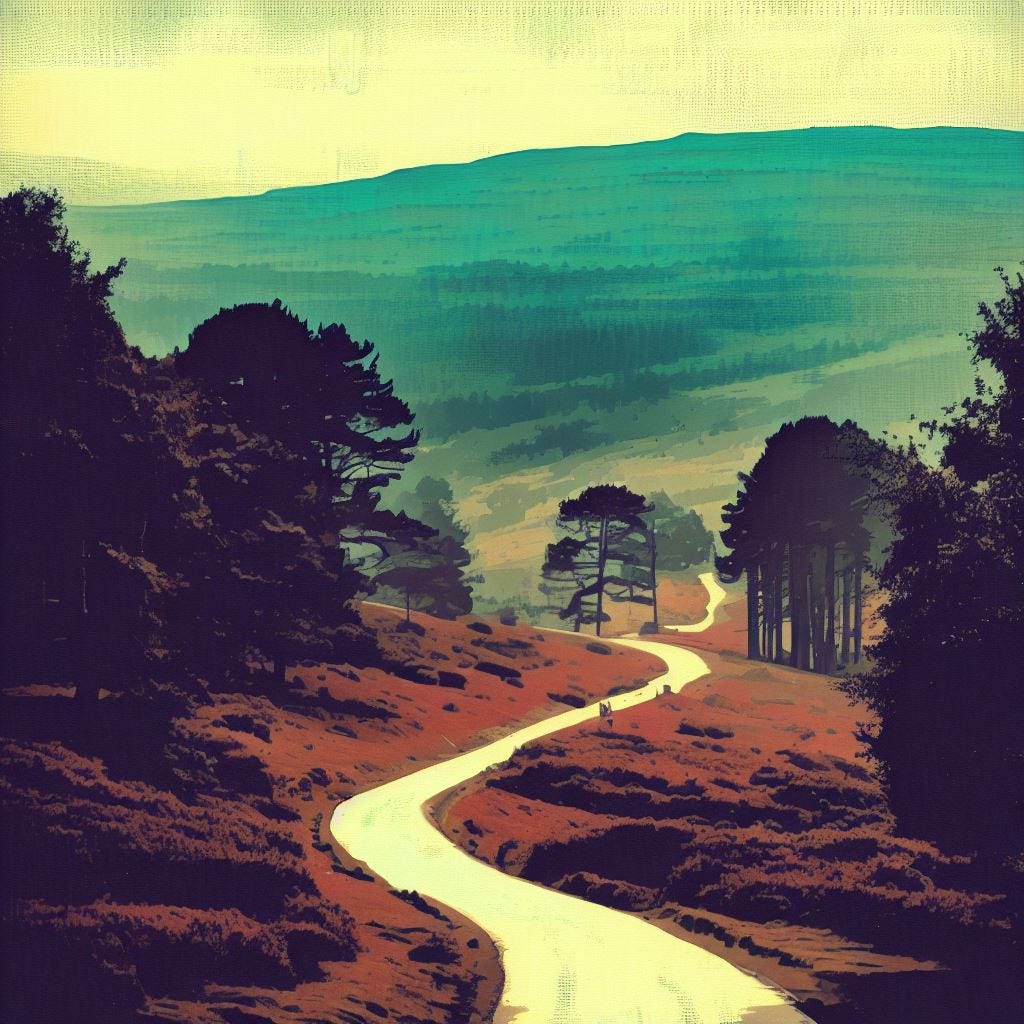Welcome …
Participating and talking in two inspirational events in the past weeks provided a valuable opportunity to share insights on the lessons we can receive from ecological and climate literature, encompassing both fiction and non-fiction. Insights that can serve as a guide for our personal growth, enhancing our regenerative self
The two events were our Living Future Europe Biophilia Camp in the Italian Dolomites and the Ramboll Regenerative Design conference in Copenhagen. (See my write-up from the Biophilia Camp here: Let the Light In and comments on the Ramboll Conference here)
Becoming
One of the key pieces of literature mentioned in a Beyond Biophilia session in Italy included the beautiful and profound The Living Mountain by Nan Shepherd.
This astonishing book has made a significant impact on my thoughts and actions, not only in outdoor pursuits and adventures but also in my endeavours in sustainability and regenerative work. It introduced me to the significance of mindfulness, emphasizing the practice of being present in and with nature.
The Living Mountain invites us to go beyond any intellectual understanding of nature and to embrace a more profound, experiential, and spiritual connection with the environment. It underscores the importance of becoming one with nature as a means of not only understanding but also celebrating the beauty and interconnectedness of the natural world.
How does it feel?
Data can show us what is happening and forecast likely scenarios, ecological literature can shape our mindsets, yet it is climate literature that can reach our emotions, helping us understand how it feels, for good or worse, to live through climate and ecological collapse.
While classic ecological and climate literature (such as the works of Wordsworth, Muir, Thoreau, Aldo Leopold, and others) aids in comprehending and framing the mindset necessary for addressing climate challenges, contemporary climate fiction such as "Ministry for the Future," "The Overstory," and "The High House" offers a unique perspective. These modern literary authors are well crafted in putting us within the story. Cli-fi enables us to gain a deeper and emotional insight into what change feels like, the lived experience of navigating a world affected by climate change and diminishing biodiversity, helping us connect on a more visceral level with the realities of our changing planet.
Literature Lessons for Reconnecting with Nature
From climate fiction and non-fiction, we can enhance our personal journeys, improve our observational mindfulness, better understand language as connection, fuel our curiosity and wonder, feed our sense of place and local awareness and better understand the healing power of mindful presence.
A changing ecological mindset - from Romantics to the Modern Day
Literature mentioned in the talks included: - Gilbert White. The Natural History and Antiquities of Selborne (Notes) - Wordsworth - eg Tintern Abbey ("A presence that disturbs me with the joy ...") - John Muir - My First Summer in the Sierra ("on going out, I found I was really going in") - Thoreaux - On Walden Pond - Aldo Leopold - Sand County Almanac, (Think Like a Mountain) - Nan Shepherd - The Living Mountain (Insights) Current Nature Literature - George Monbiot - Regenesis - Robert Macfarlane -Mountains of the Mind, Lost Words, Lost in the Cedar Wood (Notes) - Reconnection - Miles Reconnection (review) - Thin Places - Kerri ni Dochartaigh (review) Climate Fiction - Kim Stanely Robinson- Ministry for the Future - The High House - Jessie GreenGrass ("we think we have enough time until we dont") - Richard Powers - The Overstory







Martin, love this reflection on how emotions evoked by the written word help navigate our place in the world. Ive started to gift The Living Mountain (Nan Shepherd) to my house guests as a memento, it’s such a gem.